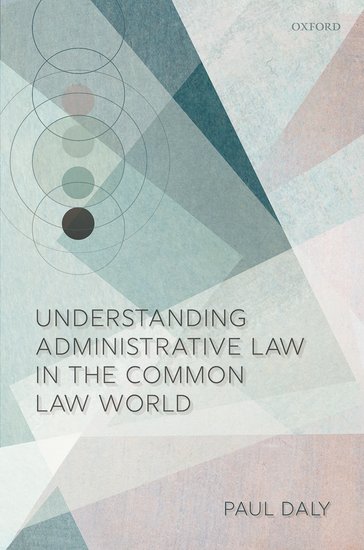2022
Comments
The Ages of Administrative Law: Introduction
I have posted “The Ages of Administrative Law“, my contribution to this year’s Public Law Conference, to SSRN. Here is the introduction. Thoughts and comments very welcome. The advocates of the 20th century welfare state envisaged a government that would take care of its citizens from the cradle to the grave. The contemporary administrative state […] Read more
Comments
Understanding Administrative Law in the Common Law World – A Response to Another Set of Commentators
The British Association for Comparative Law has kindly run a symposium on my recent book, with posts by Professors John Bell, Peter Cane and Giacinto della Cananea. Here is my response I am very grateful to the esteemed commentators for taking the time to read and analyze Understanding Administrative Law in the Common Law World […] Read more
Comments
The Implications for Administrative Tribunals of R. v. Sullivan, 2022 SCC 19
In R. v. Sullivan, 2022 SCC 19, the Supreme Court of Canada authoritatively addressed the effect of declarations of unconstitutionality. Along with colleagues from Torys LLP, I intervened on behalf of the British Columbia Civil Liberties Association to argue that declarations of unconstitutionality issued by superior courts mean that unconstitutional laws are of no force […] Read more
Comments
Understanding Administrative Law in the Common Law World – Response to Contributors
Over the past few months, the Administrative Law in the Common Law World Blog has hosted a symposium on my recent book on judicial review. The contributions were uniformly excellent. I hope my response matches up… In Understanding Administrative Law in the Common Law World (Oxford University Press, 2021), I set out to offer a […] Read more
Comments
The Rise of Facts in Public Law IV: Facts as Constitutional Causes of Action
In a draft book chapter I am working on with co-author Kseniya Kudischeva, we discuss the increased importance of factual assessments in public law. This is the fourth of four substantive parts (see Part I here, Part II here and Part III here). Comments and thoughts welcome. We turn lastly to a distinctly Canadian phenomenon, […] Read more
Comments
The Rise of Facts in Public Law III: Systemic Challenges to Regulatory Regimes
In a draft book chapter I am working on with co-author Kseniya Kudischeva, we discuss the increased importance of factual assessments in public law. This is the third of four substantive parts (see Part I here and Part II here). Comments and thoughts welcome. In our increasingly complex and fast-changing world, legislatures and executives have […] Read more
Comments
The Rise of Facts in Public Law II: Factual Assessments in Judicial Review of Legislation
In a draft book chapter I am working on with co-author Kseniya Kudischeva, we discuss the increased importance of factual assessments in public law. This is the second of four substantive parts (see Part I here). Comments and thoughts welcome. In federal systems, factual assessments can never be entirely off limits in judicial review of […] Read more
Comments
The Federation of Law Societies of Canada and Online Teaching
Like many Canadian law faculties, the University of Ottawa has been delivering a significant amount of its teaching virtually or bi-modally during the COVID-19 pandemic. I have been teaching administrative law in a flipped classroom format for the last two years: students consume recorded lectures beforehand and participate via Zoom in small- and large-group class […] Read more
Comments
Exam Season
Teaching term is over and exam season is upon us. Here is this year’s exam for Administrative Law. You have six hours… In the fictional Canadian province of Lower Canada, there occurred in 2020 an outbreak of a highly contagious and extremely dangerous flu-like disease known as VICOD. In Lower Canada, the Public Health Act […] Read more
Comments
Early Canadian Administrative Law
The few historically oriented discussions of public administration in Canada tend to take the regulation of railways in the 1850s as their starting point. But there were early pre-cursors to the administrative state. The dominant theory of Canadian economic development is that the country was built on the production and export of various ‘staples’. From […] Read more
